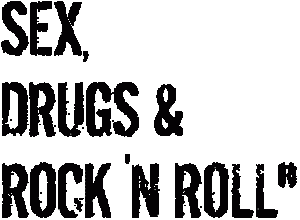“How do you teach rock and roll and avoid the inappropriate stuff?” It’s a question I get asked at nearly all of my conference sessions. There is not simple answer to that question because each school and teacher is different, but there are ways to handle rock and roll with kid gloves.
Lots of songs are overtly about these sensitive topics and it’s easy to avoid discussing those in class if you so choose. It doesn’t take an experienced wordsmith to realize you probably don’t want to play Sir Mix-a-lot’s “Baby Got Back” or Eric Clapton’s “Cocaine” for your 5th graders. The problem comes from the covert and artistic lyrics many songs employ to hide their content. If you’re worried, SongMeanings.com or a Google search can usually yield the lyrics and a rationale behind the song from the artists themselves or someone experienced. (Here is an example for Hozier’s “Take Me To Church.”) When in doubt or to double-check, look at the lyrics yourself and discern the meaning.
My personal philosophy for my eighth graders isn’t to ignore drug topics, though I don’t usually use the term “Psychedelic” as the main exception to that rule. I discuss musicians’ drug use with my 8th graders because it’s not hard to say “don’t do drugs” at the end of the conversation. There’s an entire Wikipedia list of pop musicians who have died from issues with alcohol and drug use and that’s not including musicians who have fallen into poor health. Rockers stammering over themselves or appearing older than their age give a visual to kids that many public service announcements can’t.
Sex and rock and roll will forever be linked – the term “rock and roll” was blank slang for intercourse, after all. Like drugs, I don’t dwell on the sexual nature of the music with my middle schoolers, either. We don’t discuss “Elvis the Pelvis” in my classroom when we listen to The King not do we talk about why Ed Sullivan only showed him from the waist up. Several of the documentaries we use rightfully link forms of popular music to sexual content – the first girl group song to top the charts was “Will You Love Me Tomorrow?” – but it’s up to you to decide through conversations with your principal, health teacher, and other stakeholders.
We all have exceptions, of course. A couple years ago I first discussed the homosexual roots of Disco music in gay bars and the reasons they couldn’t have live music in these venues at the time.
It will be difficult to cut all romance from your pop music curriculum, but it would also be difficult to do the same for folk music, classical music, and practically anything that’s not Contemporary Christian. Music, art, social studies, science and English teachers will all have to address these issues at some point in their classrooms so it’s best to have an idea of what you want to say (and more importantly what you don’t) for when the situation arises. It’s also best to always pre-screen songs and music videos before showing them. With those two strategies, you can eliminate most of the uncomfortable situations that can arise.

[…] Sex, drugs, and rock & roll and music education (2/27/2015) […]
LikeLike